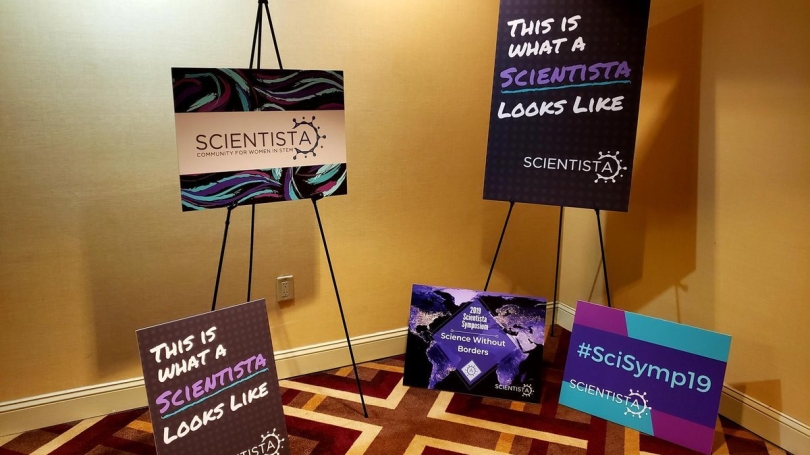
- Public Policy
- Leadership
- Funding
- News & Events
- About the Center
Back to Top Nav
Back to Top Nav
Back to Top Nav
Back to Top Nav
Mini-Grant recipient, Karina Lopez '19, shares her experience attending the Scientista Conference.
The Scientista Conference was founded in 2011 by two graduate students who identified a need in the scientific community for female scientists to organize, connect, and share resources for professional development. As a Latina studying Neuroscience, I had become accustomed to being one of few, if not the only, latinx woman in the classroom and laboratory. Additionally, I aim to increase our knowledge of the brain to improve mental health treatment and access to care.
Due to the limitations of the surrounding social environment, many psychology studies may not be so representative of more diverse groups of people. Having this in mind, I attended the conference to see how someone of my background can empower and support more diverse communities through scientific research.
At the Scientista Conference, I met Dr. Christine Grant, a chemical engineering professor at North Carolina State University. As a black female professor, she navigated a predominantly white, male field with her secret weapon, resiliency. By its definition, resiliency is the ability to spring back into shape, a sort of toughness and determination. While central to her success, Dr. Grant also highlighted the importance of support networks, the professional and personal relationships that foster self-empowerment. Through a series of portraits, she highlighted her evolving self-confidence reflected through her hairstyle. From one woman of color to another, seemingly small choices such as hairstyle and hoop-wearing are culturally significant markers. As Dr. Grant gained more power in position and confidence, she chose hairstyles that did not hide away her blackness.
In addition to her career success, Dr. Grant has achieved another success, to make space for people like her, people like me in science. Reflecting on my own trajectory, I saw my success following my self- empowerment. I recently gained entry to a network of more diverse scientists that have proved to care about my personal and professional growth. While I was born to be resilient in this white-normative country, without a supportive network of people, I would be a burnt out candle.
Activism has always been communal, likewise, so is scientific advancement. To build space for black and brown scientists, we need to be included in professional networks pushing for our success. Once in, we also need to make space for even more diverse scientists. Attending the Scientista conference emphasized the power gained through communal support. Resilient scientists need the active support of mentors and colleagues. As a young scientist, I look forward to serving my community and the incoming generations of scientists.
-Submitted by Karina Lopez '19, Rockefeller Center Mini-Grant Recipient
The Rockefeller Center's Mini-Grants program funds registration fees for students attending conferences, as well as the costs of bringing guest speakers to Dartmouth. The views and opinions expressed here are the author’s own and do not necessarily represent the views and opinions of the Rockefeller Center or constitute an endorsement by the Center.